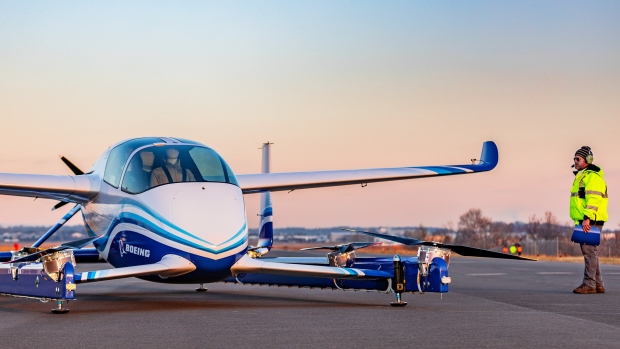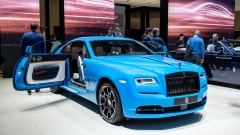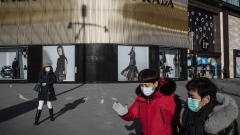Jan 23, 2019
Boeing’s flying car has taken off
, Bloomberg News

A Boeing Co. (BA.N) flying car designed to whisk passengers over congested city streets and dodge skyscrapers completed its first test flight on Tuesday, offering a peek into the future of urban transportation the aerospace giant and others are seeking to reshape.
A prototype of its autonomous passenger air vehicle completed a controlled takeoff, hover and landing during the test conducted in Manassas, Virginia, the maker of military and commercial jets said in a statement Wednesday. Propelled by electricity, the model is designed for fully autonomous flight, with a range of as much as 50 miles, Boeing said.
The Chicago-based plane maker and arch rival Airbus SE are among a slew of companies racing to stake a claim on flying cars and parcel-hauling drones, which have the potential to be the next disruption to sweep the aerospace industry. Boeing’s push was boosted by a 2017 acquisition of Aurora Flight Sciences, whose projects include a new flying taxi it is developing with Uber Technologies Inc.
Others are also rushing rotorcraft concepts to market. Vahana, the self-piloting air taxi developed by A3, Airbus’s tech-centric Silicon Valley outpost, completed its first test flight last year. Intel Corp. and EHang Inc. are also testing their flying vehicles.
Morgan Stanley analysts, in their most bullish estimates, predict such technology could lead to a US$2.9 trillion industry by 2040, while their most pessimistic view pegs the value at about US$615 billion.
Boeing’s urban air mobility arm, Boeing NeXt, enlisted Aurora to design and develop the prototype. The company didn’t say if the model is the one being developed for Uber. Boeing NeXt’s portfolio also includes a fully electric cargo air vehicle -- designed to transport as much as 500 pounds -- which completed its first indoor flight last year and is slated for outdoor testing this year.
Future flights of the 30-feet-long and 28-feet-wide PAV prototype will test forward, wing-borne flight and the transition phase between vertical and forward-flight modes, according to the Boeing statement. The company will also continue testing to advance safety and reliability of the aircraft, it said.



